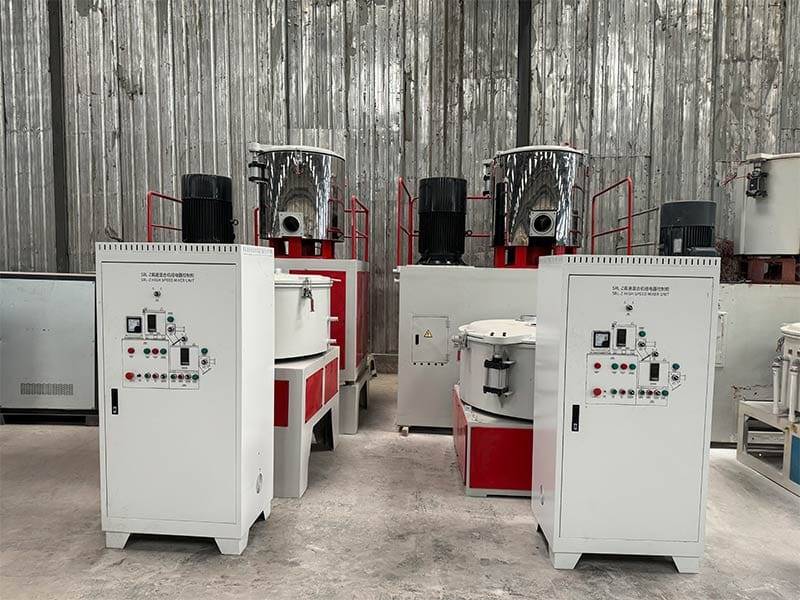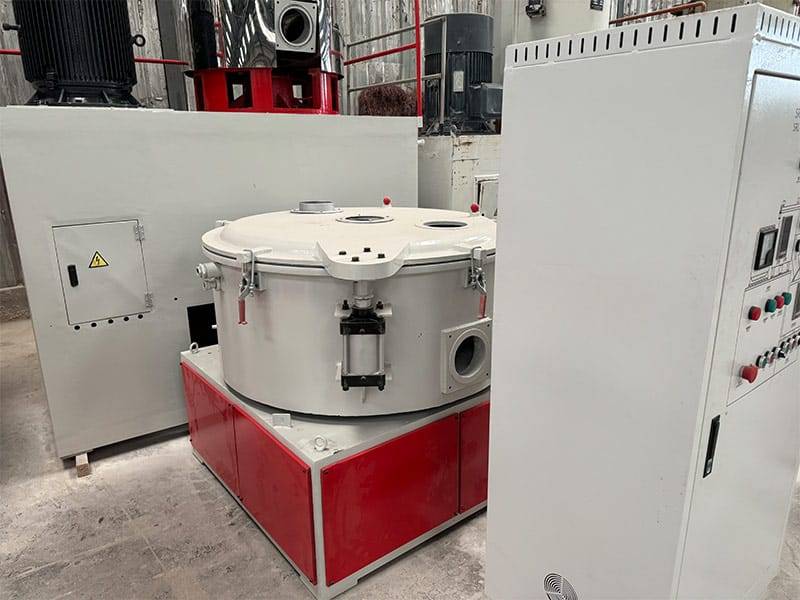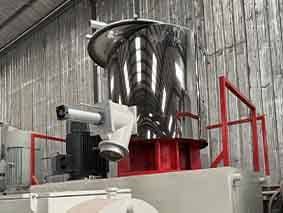Welcome to My Blog!
Before we dive into the content, I’d love for you to join me on my social media platforms where I share more insights, engage with the community, and post updates. Here’s how you can connect with me:
Facebook:https://www.facebook.com/profile.php?id=61567891941530
Now, let’s get started on our journey together. I hope you find the content here insightful, engaging, and valuable.
Caisu Machinery sells a variety of used plastic pipe production equipment. The products are of high quality and low price. Welcome to contact us for consultation and purchase. We will be happy to serve you.
Table of Contents
Introduction

In modern production environments, efficiency and quality are two of the most critical factors for success. Industrial mixer machines play a significant role in achieving these goals by optimizing the mixing process for a wide range of industries, including food and beverage, pharmaceuticals, chemicals, and construction. From reducing labor costs to improving product consistency, these machines have become indispensable tools for businesses aiming to streamline their operations.
This comprehensive guide will take you through the basics of industrial mixer machines, their types, applications, and how they improve production efficiency.
What Are Industrial Mixer Machines?
Industrial mixer machines are specialized equipment designed for blending, mixing, or combining various materials. These machines are used in both large-scale and small-scale operations to achieve a uniform mixture of components. They are widely utilized in industries such as:
- Food Processing: Mixing ingredients for dough, batter, or sauces
- Pharmaceuticals: Blending powders and active ingredients
- Chemicals: Homogenizing liquids, pastes, or dry powders
- Construction: Mixing concrete, adhesives, and other building materials
Industrial mixer machines come in different sizes and configurations, depending on the specific needs of the industry.
Benefits of Industrial Mixer Machines
Industrial mixer machines offer several advantages that contribute to improved production efficiency. Here are some key benefits:
Enhanced Mixing Precision
These machines ensure a uniform mix of components, reducing the chances of inconsistencies. This is particularly important in industries where product quality and safety are paramount.
Increased Production Speed
By automating the mixing process, industrial mixer machines significantly reduce the time required for blending materials. This allows manufacturers to produce more in less time.
Reduced Labor Costs
With automation, businesses can reduce their reliance on manual labor, leading to cost savings and improved workplace safety.
Versatility
Industrial mixer machines can handle a wide variety of materials, from powders and granules to liquids and viscous substances.
Energy Efficiency
Modern mixer machines are designed to consume less energy while delivering high performance, making them a sustainable choice for businesses.
Types of Industrial Mixer Machines


There are several types of industrial mixer machines, each designed for specific applications. Here are the most common ones:
Ribbon Mixers
Ribbon mixers are ideal for blending dry powders and granules. They consist of a U-shaped trough and a rotating ribbon that moves materials in opposite directions for thorough mixing.
Paddle Mixers
These machines use paddles to lift and mix materials, making them suitable for mixing both wet and dry materials.
Planetary Mixers
Planetary mixers are commonly used in the food and pharmaceutical industries for mixing viscous substances like dough or creams.
High-Shear Mixers
High-shear mixers are designed for emulsifying, homogenizing, and dispersing materials, making them ideal for chemical and cosmetic applications.
Drum Mixers
Drum mixers are used for mixing large volumes of materials, such as concrete or mortar, and are popular in the construction industry.
Table: Comparison of Industrial Mixer Machines
| Type of Mixer Machine | Best For | Key Features | Common Applications |
|---|---|---|---|
| Ribbon Mixers | Dry powders and granules | U-shaped trough, rotating ribbons | Food processing, pharmaceuticals |
| Paddle Mixers | Wet and dry materials | Lifting paddles, gentle mixing | Chemicals, agriculture |
| Planetary Mixers | Viscous substances | Rotating and orbiting mixing arms | Bakery, cosmetics |
| High-Shear Mixers | Emulsions and dispersions | High-speed rotating blades | Pharmaceuticals, cosmetics, chemicals |
| Drum Mixers | Large volumes | Rotating drum, large capacity | Construction, mining |
This table highlights the strengths of different mixer machines, helping you choose the right one for your needs.
How Industrial Mixer Machines Improve Production Efficiency

Industrial mixer machines enhance production efficiency in various ways. Here’s how they make a difference:
Automation and Consistency
By automating the mixing process, these machines ensure consistent results with minimal human intervention. This reduces errors and improves product quality.
Scalability
Industrial mixer machines can handle large volumes, making it easier for businesses to scale up production without compromising quality.
Reduced Downtime
Modern machines are designed for easy maintenance and quick cleaning, reducing downtime and maximizing productivity.
Customization Options
Many industrial mixer machines come with customizable settings, allowing businesses to fine-tune the mixing process according to their specific requirements.
Improved Safety
With advanced safety features, these machines protect operators from potential hazards, creating a safer work environment.
Applications of Industrial Mixer Machines
Industrial mixer machines are used in a wide range of applications, including:
- Food and Beverage: Mixing dough, batter, sauces, and spices
- Pharmaceuticals: Blending powders, granules, and liquid formulations
- Chemicals: Homogenizing and emulsifying chemicals for various products
- Construction: Mixing concrete, plaster, and other building materials
- Cosmetics: Preparing creams, lotions, and other beauty products
Conclusion
Industrial mixer machines are a game-changer for industries looking to improve production efficiency, reduce costs, and maintain high-quality standards. By choosing the right type of mixer machine for your specific needs, you can optimize your processes and stay ahead of the competition. As technology continues to evolve, industrial mixer machines are becoming even more efficient and versatile, making them an indispensable tool for modern businesses.
FAQ
What is an industrial mixer machine?
An industrial mixer machine is a device designed to blend, mix, or homogenize materials for various industrial applications, such as food processing, pharmaceuticals, and construction.
How do I choose the right industrial mixer machine?
Consider factors such as the type of materials you need to mix, the required capacity, and the level of automation. It’s also important to assess your budget and specific industry requirements.
Are industrial mixer machines energy-efficient?
Yes, modern industrial mixer machines are designed to consume less energy while delivering high performance, making them both cost-effective and environmentally friendly.
Can one machine handle multiple materials?
Some industrial mixer machines are versatile enough to handle different types of materials, while others are specialized for specific applications. Be sure to check the specifications of the machine.
What maintenance is required for industrial mixer machines?
Regular maintenance includes cleaning the machine after use, checking for wear and tear, and lubricating moving parts. Following the manufacturer’s maintenance guidelines is essential for optimal performance.
Are industrial mixer machines safe to use?
Yes, most modern industrial mixer machines come with advanced safety features to protect operators and ensure safe operation.





